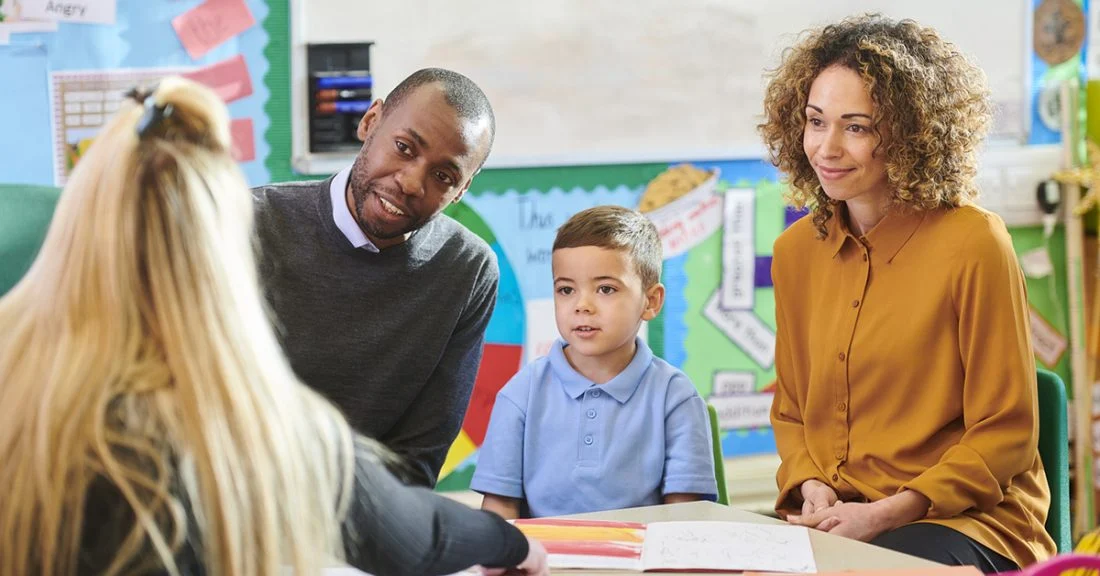Three Key Tips: School Interaction in Non-Traditional Families
Managing school interactions in non-traditional families can be enriching. Understand family dynamics by embracing diversity. Build positive relationships through open communication with teachers. Support your child’s academic journey by advocating for their unique needs. Be proactive in addressing challenges to create a harmonious school experience. Celebrate family diversity for a more inclusive environment. Seeking support from school staff is essential for success. Remember, empathy, communication, and advocacy are key in fostering a positive educational journey for your child in a non-traditional family setting.
Key Takeaways
- Communicate openly with teachers about family dynamics.
- Collaborate with educators to address unique needs.
- Establish trust with school personnel for support.
- Attend parent-teacher meetings for a positive educational experience.
- Advocate for your child’s academic success.
Understanding Family Dynamics

Understanding family dynamics is essential when maneuvering interactions in non-traditional families, as each family structure brings its own unique set of challenges and strengths. In non-traditional families, such as blended families or single-parent households, communication strategies play an important role in fostering healthy relationships. Dealing with challenges within these diverse family dynamics requires empathy, patience, and open-mindedness.
Celebrating diversity within non-traditional families involves recognizing and embracing the differences that each family member brings to the table. It’s essential to create a safe and inclusive environment where every individual feels valued and respected.
Effective communication strategies, such as active listening and clear expression of thoughts and feelings, can help bridge any gaps and strengthen family bonds.
Building Positive Relationships
When it comes to building positive relationships in non-traditional families, open lines of communication between parents and teachers play a vital role.
By fostering a supportive school environment, both parents and educators can collaborate to guarantee the child’s academic and emotional needs are met.
Parent-Teacher Communication
Establishing open lines of communication between parents and teachers is essential for building positive relationships that support student success in non-traditional families. Parent involvement plays an important role in fostering a collaborative educational environment. By actively participating in parent-teacher conferences, volunteering at school events, and engaging in discussions about their child’s progress, parents can demonstrate their dedication to their child’s education.
Regular school updates are another key aspect of effective parent-teacher communication. Whether through emails, phone calls, or newsletters, staying informed about school events, academic progress, and any challenges your child may be facing can help parents provide the necessary support at home.
It’s crucial for parents to express any concerns or questions they may have to teachers promptly to address them together.
Supportive School Environment
Creating a nurturing school environment is fundamental to fostering positive relationships between students, parents, and teachers. One key aspect of this is creating welcoming spaces within the school. By ensuring that the school environment is warm, inviting, and inclusive, you can help all individuals feel comfortable and valued.
Consider incorporating elements like cozy reading nooks, inspirational artwork, and communal areas where families can gather.
Another essential component is encouraging family involvement. Parents and guardians play an important role in a student’s educational journey, and when they feel welcomed and included by the school, it can strengthen the overall support system for the child.
Organize family events, workshops, and volunteer opportunities to actively engage parents in the school community. By fostering a sense of belonging and collaboration, you can build a strong foundation for positive relationships between families and the school.
Communicating Effectively With Teachers

When engaging with teachers, remember that effective communication is key to supporting your child’s education.
Try initiating conversations with teachers to understand their strategies and share insights about your child.
Utilize parent-teacher meetings as opportunities to collaborate and create a positive educational experience for your child.
Teacher Communication Strategies
To build a strong partnership with your child’s teacher, prioritize open and frequent communication to establish a collaborative and supportive academic environment. Maintaining a collaborative approach and active classroom involvement can greatly benefit your child’s learning experience.
Open communication and parental engagement are key components in fostering a positive relationship with your child’s teacher. When communicating with teachers, be proactive in sharing important information about your child, such as their learning style, interests, and any challenges they may be facing. This insight can help teachers tailor their approach to better support your child’s academic growth.
Additionally, don’t hesitate to ask questions or seek clarification on any concerns you may have regarding your child’s progress in school. Regularly checking in with your child’s teacher, either through email, phone calls, or scheduled meetings, can help keep you informed about their academic performance and any upcoming events or assignments.
Parent-Teacher Meeting Tips
Effective communication with your child’s teacher during parent-teacher meetings is essential for fostering a collaborative and supportive academic environment. When meeting with your child’s teacher, focus on building trust by being open and honest about your child’s strengths, challenges, and learning style. Remember, teachers are there to support your child’s growth and development, and working together as a team is key to their success.
Active participation during parent-teacher meetings is important. Come prepared with questions or topics you’d like to discuss, such as your child’s progress, behavior, or any concerns you may have.
Listen attentively to the teacher’s feedback and suggestions, and be willing to share your insights and observations as well. This exchange of information can help create a more thorough understanding of your child’s academic journey.
Supporting Academic Journey

Succeeding in the academic journey in non-traditional families can present unique challenges, but with appropriate support and resources, students can thrive and succeed. Academic achievement is vital, and family involvement plays a significant role in supporting this journey. As parents or caregivers in a non-traditional family, you may face obstacles that traditional families don’t encounter. However, your involvement in your child’s education can make a substantial difference.
To support your child’s academic journey effectively, start by establishing open communication with teachers and school staff. Create a partnership where you work together to identify your child’s strengths and areas for improvement.
Encourage your child to set academic goals and provide a supportive environment for their learning. Additionally, explore resources within the community that can offer further assistance, such as tutoring programs or educational workshops.
Advocating for Your Child
In guiding your child’s educational journey as a parent or caregiver in a non-traditional family, advocating for your child is vital for their academic success. Empowering parents to speak up on behalf of their children’s educational needs can make a significant difference in their academic progress.
By actively engaging with teachers, counselors, and school administrators, you can guarantee that your child’s unique circumstances and requirements are understood and accommodated.
Fostering trust with school personnel is essential in advocating for your child effectively. Building positive relationships with educators can help create an environment where open communication and collaboration are encouraged, leading to better outcomes for your child.
Remember, you’re your child’s greatest advocate, and your active involvement in their education can pave the way for their success.
When advocating for your child, be clear about their strengths, challenges, and goals. Providing this information can help educators tailor their approach to support your child effectively.
Navigating School Events
When it comes to managing school events in non-traditional families, it’s important to take into account event attendance strategies and effective communication with teachers.
Finding a balance between participating in school activities and accommodating your family structure can be challenging but vital.

Event Attendance Strategies
Managing school events in non-traditional families can present unique challenges that require thoughtful planning and proactive strategies. Parent involvement is essential in ensuring that all family members can participate in these events.
When it comes to event planning, consider creating a shared family calendar to keep track of important dates and activities. This can help everyone stay organized and make certain that events don’t clash with other commitments.
To navigate school events successfully, communication is key. Make sure to communicate openly with teachers and event organizers about your family’s situation. Discuss any specific needs or accommodations that may be necessary to facilitate attendance for all family members.
Additionally, consider carpooling with other families or arranging for alternative transportation if needed.
Communication With Teachers
Managing school events in non-traditional families requires effective communication with teachers to ensure full participation and comfort for all family members. Parent involvement is crucial in informing teachers about specific family dynamics that may affect event attendance. Initiate open dialogue early on, expressing readiness to collaborate and find solutions together.
Teacher collaboration is essential for accommodating non-traditional family structures during school events. Keeping teachers informed about unique family situations like step-parents, guardians, or co-parenting arrangements allows for inclusive event experiences. Proactively discuss any concerns or preferences regarding family involvement, enabling teachers to offer support and adjustments as needed.
Embracing Diversity and Inclusion
In fostering a supportive environment for all families, it’s essential for schools to actively embrace diversity and inclusion practices. Embracing differences and fostering understanding among students, families, and staff members is vital for creating a welcoming and inclusive school community.
By promoting inclusivity and celebrating diversity, schools can cultivate a sense of belonging for everyone, regardless of their background, culture, or family structure.
To embrace diversity and inclusion effectively, schools can implement initiatives such as multicultural events, inclusive curriculum materials, and sensitivity training for staff members. Encouraging open discussions about different family structures and backgrounds can help foster empathy and respect among students.
Creating a safe space where everyone feels accepted and valued is key to promoting a positive learning environment for all.
Seeking Support From School Staff
To navigate challenges or seek guidance in fostering inclusivity and embracing diversity within your school community, consider seeking support from school staff members who are dedicated to promoting a welcoming environment for all families. Building rapport with these staff members can provide you with valuable insights and resources to navigate any hurdles that may arise.
Engaging in open and honest conversations with them can help you feel supported and understood as you work towards creating an inclusive environment for non-traditional families.
When seeking guidance from school staff, it’s essential to approach them with a willingness to listen and learn. Remember that they’re there to support you and your efforts in fostering a diverse and inclusive school community.
Share your concerns, ask questions, and seek their advice on how best to navigate any challenges that may come your way. By building a strong relationship with school staff members, you can create a supportive network that will help you overcome obstacles and promote inclusivity within your school.
Addressing Challenges Proactively

When confronted with obstacles or difficulties, approaching them proactively can pave the way for smoother resolutions and a more inclusive environment for non-traditional families. Early intervention is key when addressing challenges within a school setting. By recognizing issues early on, you can prevent them from escalating and guarantee that your family’s needs are met effectively.
Proactive communication plays a crucial role in addressing challenges before they become overwhelming. Keep an open line of communication with teachers, counselors, and administrators. Share your family’s unique situation and any concerns you may have. This transparency can help school staff better understand your needs and provide appropriate support.
Additionally, don’t hesitate to request meetings to discuss any potential issues that may arise. By addressing concerns promptly and collaboratively, you can work towards solutions that benefit both your family and the school community.
Celebrating Family Diversity
Embracing the rich tapestry of family diversity can enhance the school experience for all students and foster a more inclusive community. Family acceptance is essential in creating a supportive environment where every student feels valued and respected for their unique family structure. By celebrating family diversity, schools can cultivate a sense of belonging and understanding among students from different backgrounds.
Cultural celebration plays an important role in recognizing and appreciating the various traditions and customs that families bring to the school community. Encouraging students to share their cultural heritage not only promotes diversity but also educates others about different ways of life. This can lead to increased empathy, tolerance, and acceptance among students.
Organizing events that highlight family diversity, such as multicultural fairs or heritage months, can create opportunities for families to come together and celebrate their differences. By actively promoting family acceptance and cultural celebration, schools can create a more harmonious and enriching environment for all students.
Frequently Asked Questions
How Can Non-Traditional Families Handle Judgment From Other Parents?
Handling judgment from other parents can be tough, but remember to focus on parental involvement and community support. Use effective communication strategies and build relationships with understanding individuals. You’ve got this!
What Resources Are Available for Non-Traditional Families in Schools?
In schools, supportive programs and counseling can assist non-traditional families. Inclusive curriculum and workshops provide resources for you. Seek out these resources to feel welcomed and supported in your child’s educational journey.
Can Non-Traditional Families Request Specific Accommodations for School Events?
Yes, in non-traditional families, you can request customized accommodations for school events. It’s essential for schools to create inclusive environments. Your parental involvement is key in advocating for your family’s needs and ensuring a positive experience for all.
How Can Non-Traditional Families Address Discrimination in Schools?
To address discrimination in schools, focus on parental involvement. Communicate openly with teachers to create a supportive environment. Advocate for your child’s rights and seek assistance from school administrators if needed. Together, you can make a difference.
Are There Support Groups Specifically for Non-Traditional Families at School?
Yes, there are support groups dedicated to non-traditional families in schools. Getting involved in these communities can provide essential support, connect you with other parents, and help advocate for change within the educational system.
Conclusion
To sum up, managing school interactions in non-traditional families may come with its challenges, but by understanding your family dynamics, building positive relationships, and communicating effectively with teachers, you can support your child’s academic journey with confidence.
Remember to embrace diversity, seek support when needed, and address challenges proactively. Your unique family dynamic is a strength to be celebrated, and together with your child’s school, you can create a supportive and inclusive learning environment.

Hey there! 👋 I’m a proud mom and passionate writer, sharing my parenting journey. 📝 Join me as I navigate the ups and downs of motherhood, offering tips, advice, and a sprinkle of humor along the way. 🌟







